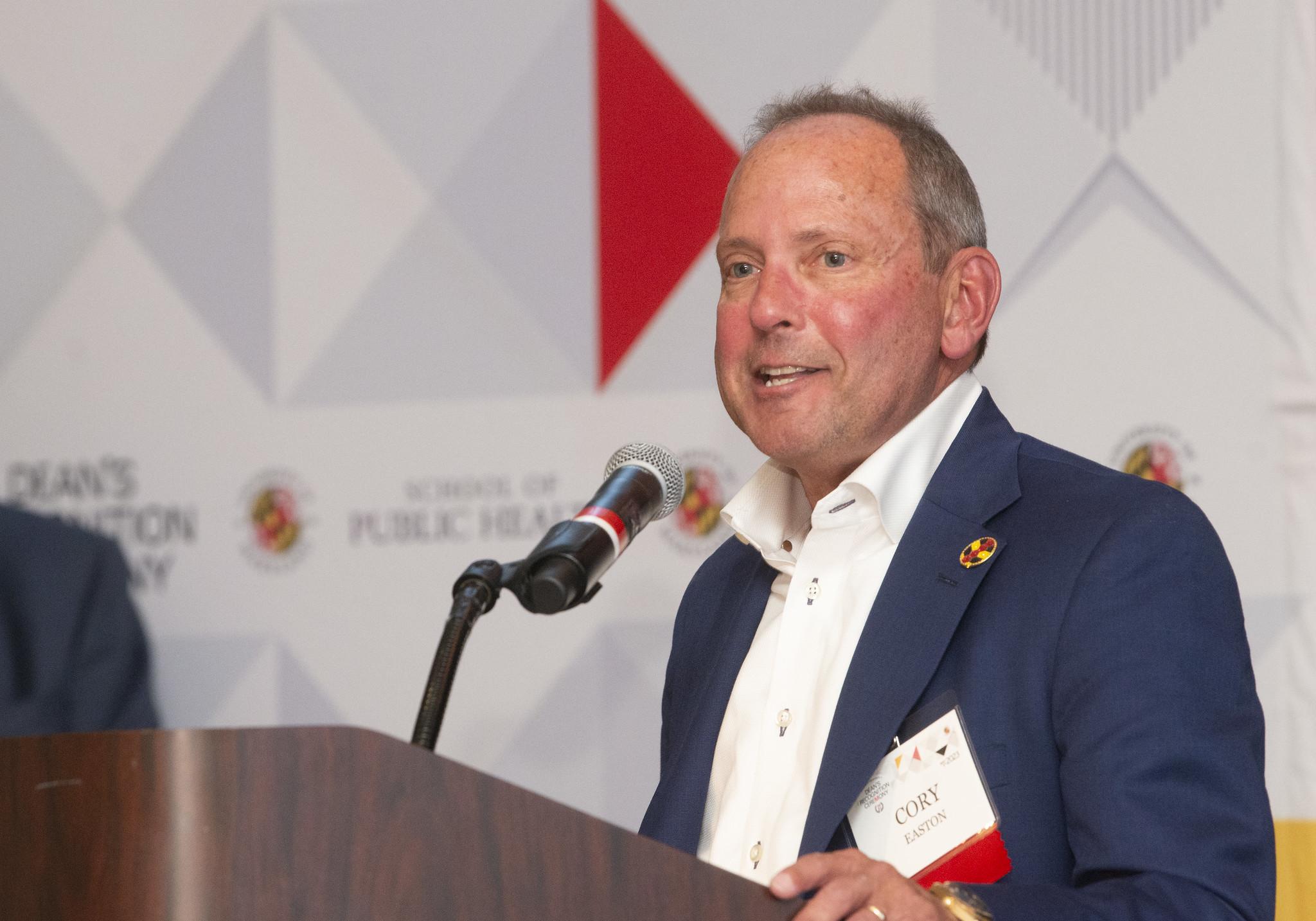
Along with higher health care costs overall, Americans spend an average of $1,300 per person on prescription drugs - more than any other country in the world. Part of the problem lies in the complexity of how prescription drug prices are set. They are determined by complex negotiations between pharmaceutical companies, pharmacy benefit managers and health insurance companies.
Yet most people, including public health professionals, have never heard of the pharmacy benefit management industry. Cory Easton '85 and his wife, Lisa, saw this as a unique opportunity for the School of Public Health. With the Eastons' support, a new certificate program offered by the Department of Health Policy and Management in Spring 2024 will provide unique training for students interested in pharmacy benefit management (PBM) careers and the health care and insurance company employees who work with them.
Easton’s vision is to demystify the pharmacy benefit management industry for students and diversify the field. In doing so, he aims to seed the industry with talented and knowledgeable people who make informed decisions about drug pricing and contracting that will help protect public health.
“Access to appropriate care, medications and drug therapies at a cost that people can afford is a public health issue,” said Easton. “But there is no formal course of study for pharmacy benefit management. Yet it drives 40% of healthcare dollars, and all of these schools of public health, business and risk management don’t even touch upon it.”
“Based on our research, we are the only university offering a program like this, and we think it is the wave of the future,” said Melvin Seale, assistant clinical professor and director of graduate studies. “Having worked in the PBM industry myself, I know how valuable this program is. We are training people to better understand how drug pricing works so that we can improve access and pricing for consumers.”
Easton’s passion for the field comes from his personal success as the co-founder of Confidio, one of the nation’s largest technology-enabled pharmacy benefits solutions companies, from which he retired in 2022. Under his direction, the company quickly became known for its ability to successfully guide self-funded health plan sponsors through pharmacy benefit challenges and optimize clients’ pharmacy benefits, earning Confidio a place on the prestigious Inc. 1000 list for three consecutive years.
In 2021, Confidio was acquired by RxBenefits, the first and largest Pharmacy Benefits Optimization (PBO) company in the United States, and today serves the pharmacy benefit management needs of over three million Americans representing more than $3 billion in annual drug spending.
Easton continues to share his expertise through a range of service and educational initiatives. In addition to serving on the School of Public Health Dean’s Council, he is a CEO Advisory Board Member for the Inc. CEO Project - a group for experienced CEOs and business leaders seeking challenge and collaboration from their peers.
He plans to use his connections in the drug pricing industry to link enrolled students with “externship” opportunities, including visits to headquarters of companies like Express Scripts in St. Louis and CVS in Rhode Island.
“My personal goal is to give back to an industry that has been very good to me and that I feel I have done a lot of good for,” said Easton. “We need younger, fresher faces and ideas on how to manage this behemoth challenge of drug costs over the next two to three decades. And I think that the university is a fabulous place to search for those individuals.
“It’s time for me to give back to my community, it all started for me at Maryland.”